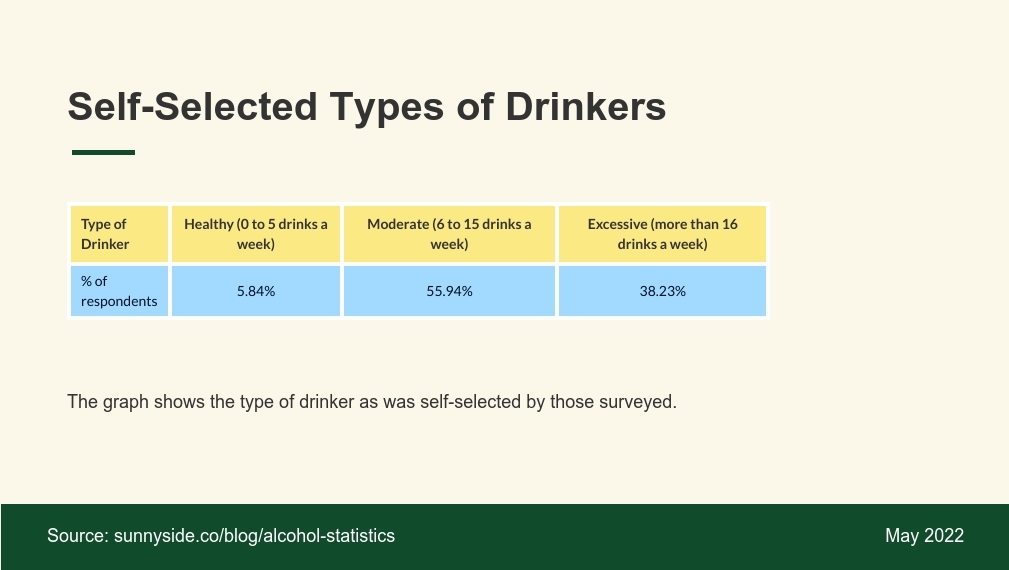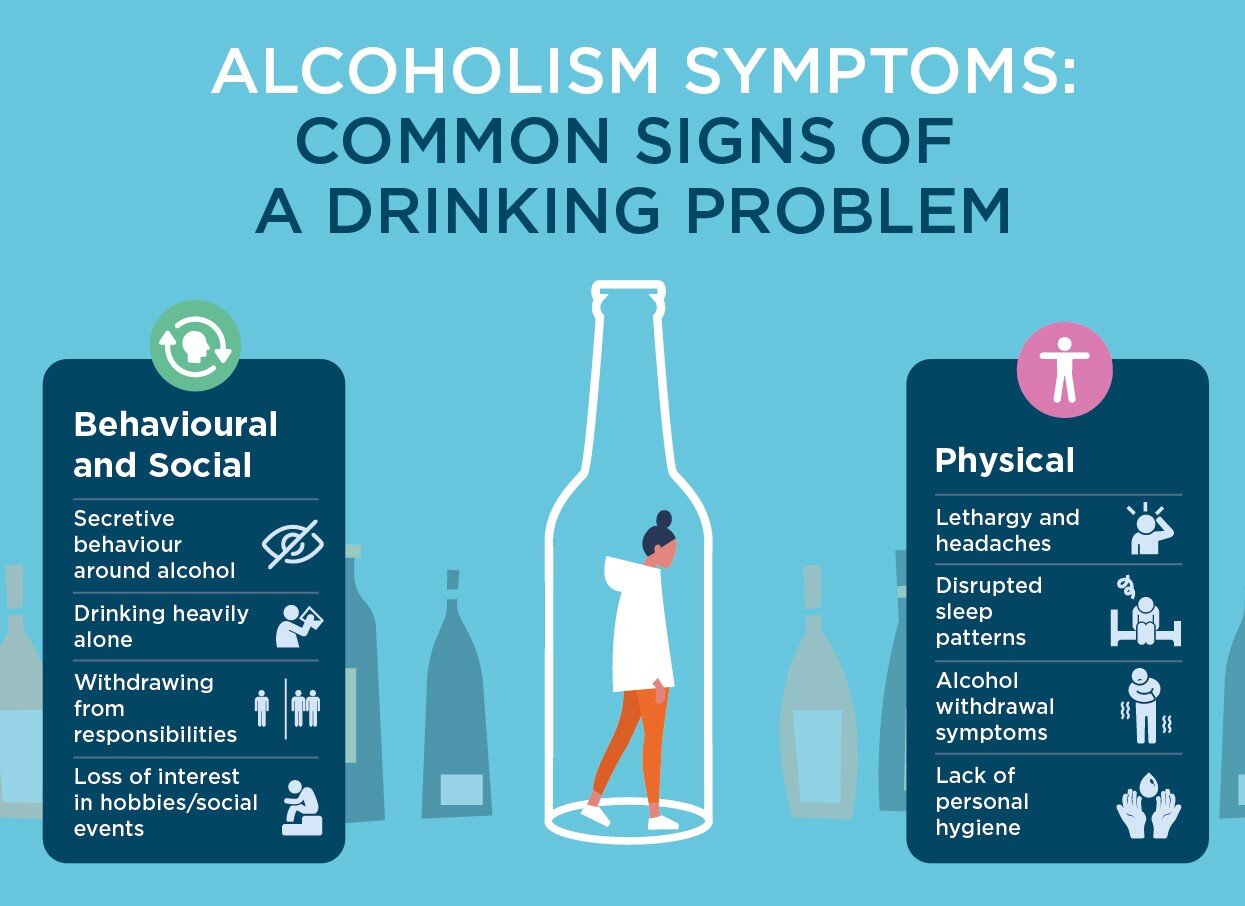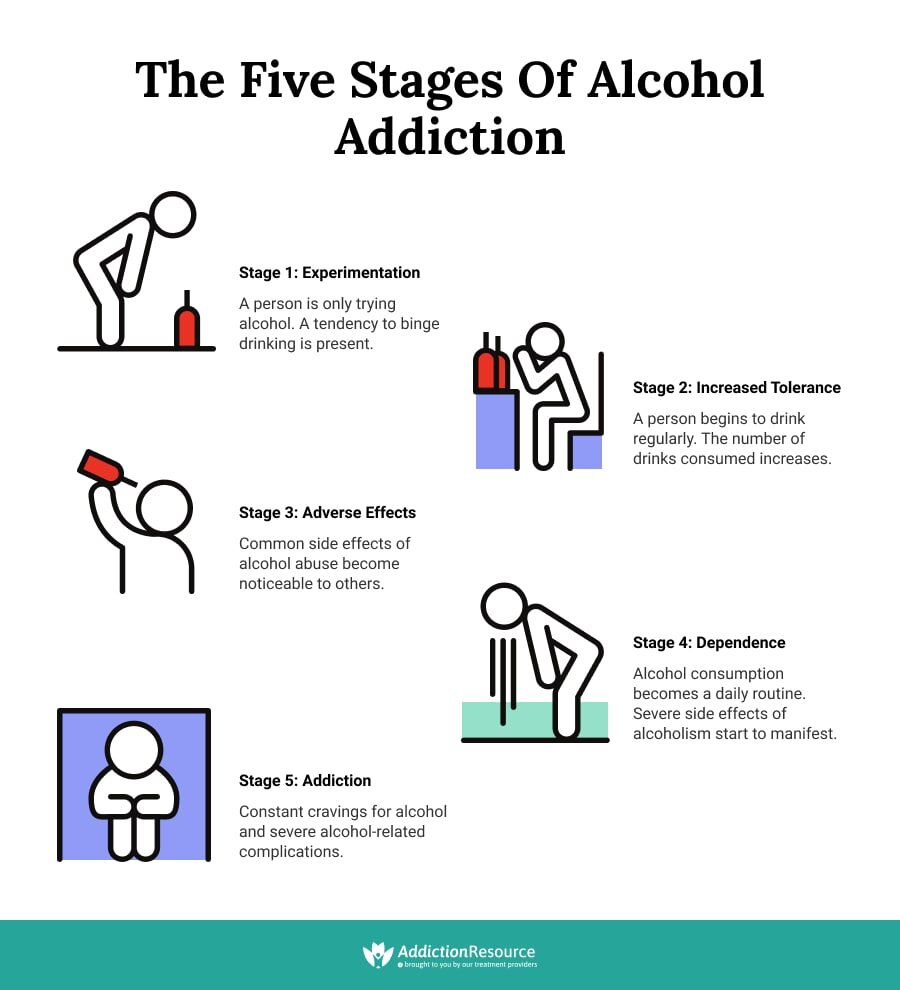Signs and symptoms that you may need help
Do you drink alcohol? If so, how often? Would you consider it to be a hobby, something you do alone, or something you do with others as a form of connecting and having fun together? The answer to these questions may lead to knowing what type of a drinker you are and if you may need help.
 Some common reasons that a person may drink alcohol include:
Some common reasons that a person may drink alcohol include:
- To unwind or decompress
- Out of habit or routine
- Due to stress
- Out of boredom
- As a celebration or reward
- With a meal
- Socially or because of peer pressure
While occasional alcohol use may not indicate or trigger a problem, prolonged use can become addictive. Signs of alcoholism do vary in severity, so it may not be one size fits all, or an individual may not experience all signs. Check out this “Alcoholism Symptoms” chart which shows behavioral, social, and physical signs that someone may have a drinking problem. You can use these signs to bring awareness about your own drinking problem, or to help notice a friend’s.

Besides these signs of a drinking problem, it can be useful to know the five stages of alcohol addiction so that you may be able to recognize if you or someone you know are advancing into a dangerous step from which it may be more difficult to return. You could also consider these stages for other substances too.
Experimentation
This one is most often undergone at a young age. At this stage, the person is commonly trying the substance out of curiosity or peer pressure. For many US college students, the independence and freedom suddenly available to them will give them newfound opportunities to drink. Remember that, since the legal drinking age in the US is 21, many of these students didn’t grow up drinking wine with dinner or having a beer with their parents. So college might be the first time they are drinking, or drinking heavily. This will be their “experimentation” phase, whereas many students from other countries have had earlier opportunities to “experiment” and have already learned how alcohol affects their body.
Increased tolerance
There is a craving to achieve the previously experienced effects again and when that craving happens, one finds that “a beer every other day” increases to “two beers” and then “three beers” as tolerance levels of the body to alcohol increase.
Adverse effects
Close friends or family may begin to notice small (or major) changes in the person’s lifestyle as the alcohol begins to take center stage. Resultant negative health effects may also become more prominent.
Dependence
The habit of drinking has wormed its way into the daily routine, and despite being aware of the adverse effects, one does not stop drinking the substance. Some dangers associated with this stage are: severe irritability, body tremors, nausea without hangover and sleep apnea.
Addiction
At this point drinking is no longer for pleasure and it is a need one can not do without and there is little satisfaction in drinking in small quantities. One of the dangers of this dissatisfaction often leads the person to begin using other substances too.
We at ISI strongly encourage you to pay attention to any sign you or others may be experiencing and to consider getting help.
For more information about long-term effects of alcohol use and ways your insurance can provide you treatment, you can check out this ISI blog article.
